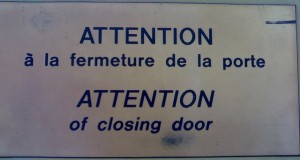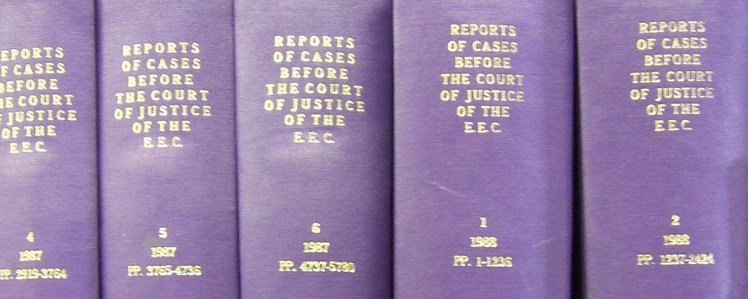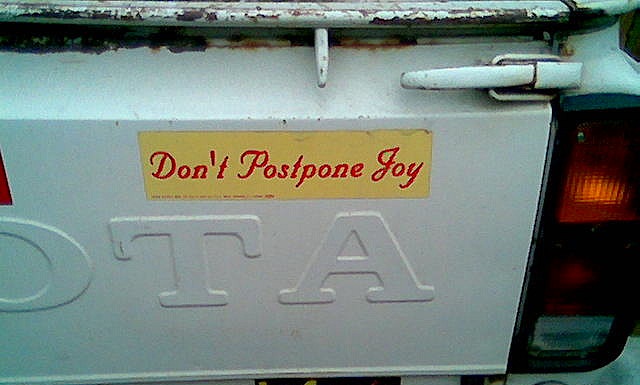After the last-minute amendments of the Unitary Patent Regulation (UPR) by the European Council on 28/29 June, who suggested
that Articles 6 to 8 of the Regulation [...] to be adopted by the Council and the European Parliament be deleted
lead to a removal of this matter from the EU Parliament’s agenda and unleashed a wave of revulsion among members of the EU Parliament in general and those of its legal committee (JURI) in particular (see here and here), the direction in which today’s JURI meeting would go was not utterly hard to predict.
And in fact, today’s press release confirmed what could have been expected anyway:
The European Council’s move to change the draft law to create an EU patent would “infringe EU law” and make the rules “not effective at all“, Bernhard Rapkay (S&D, DE), who is responsible for the draft legislation, told the Legal Affairs Committee on Tuesday. Most MEPs strongly criticised the European Council’s move and agreed to resume the discussion in September.
Apparently, this opinion is backed by the Parliament’s legal service, assuming that deleting Articles 6 to 8 UPR would “affect the essence of the regulation” thus be incompatible with EU law.
As reported here and elsewhere [1, 2, 3], the European Council agreed on the EU Unitary Patent and a EU Unified Patent Court at last week’s Brussels EU summit after volatile negotiations – by ‘suggesting’ two significant amendments (see summit conclusion, page 2, item 3) as compared to what was know from the latest available draft text of the Unitary Patent Regulation dated 23 June 2011 (see here and here).
EU Court of Justice: The more severe one of those amendments that apparently was pushed through by UK Prime Minister David Cameron to please his eurosceptics allies at home, demands
that Articles 6 to 8 of the [Unitary Patent] Regulation [...] to be adopted by the Council and the European Parliament be deleted
essentially meaning that substantive EU patent law will not any more be subject to legal order of the Union highest court, the European Court of Justice (CJEU). I share my colleague’s view that this is nothing less than “an open declaration of deep mistrust, if not political warfare of significant parts of the UK conservatives against the CJEU and thus the European Union as a whole.
This move, however, could not escape the eyes of the European Parliament, which originally wanted to nod through this matter tomorrow (4 July 2012) whereas meanwhile the item was removed from the agenda under the harsh critics of rapporteurs Bernard Rapkay (S&D, DE) and Klaus-Heiner Lehne (EPP, DE): “scandalous breach of procedure“, “oriental bazaar” (did they read this item?), ”case would go straight to the European Court of Justice“. Due to the Council’s amendments, the first reading is thus rendered null and void.
It appears that the proudness of the Danish Presidency as well as the official cries of joy of e.g. EPO President Benoît Battistelli (“historic breakthrough“) and EU Commissioner Michel Barnier (“decisive step“) came far too early while stakeholders ask themselves if this mess could not have been prevented by a more transparent process, more cooperation with the potential system users, less political tactics, and less national egoisms and horse trading. It is depressive to say, but if the implementation of a reasonable EU patent system was the litmus test for Europe’s capacity for efficient policy-making, the conclusion can only be that the striking deficiencies of the EU’s political management appear to be insurmountable.
Articles 6 to 9 of the Unitary Patent Regulation relate to substantive patent law. They regulate the right to prevent direct and indirect use of the invention (Art. 6 and 7, respectively), the limitation of the effects of the ‘Unitary Patent‘ (Art. 8) and exhaustion of the rights conferred by the ‘Unitary Patent‘ (Art. 9).
As the question of which EU member state will receive the Central Division of the EU Unified Patent Court (see here, here, and here) is officially seen as the only remaining obstacle to the Unified Patent Court Agreement, the Unitary Patent Regulation already received green light from the EU Parliament’s legal committee (JURI) in late December (see press release) so that the EU Council already began to linguistically finalise the Regulation text in early January.
THE DISPUTE ON ARTICLES 6 TO 9
Even so, a strong and illustrious ‘opposition movement’ of legal professionals and their associations (e.g. EPLAW and Jochen Pagenberg, European Patent Judges and Sir Robin Jacob, Professor Krasser, CIPA), industry representatives (e.g. ICC, IP Federation), and a few politicians (e.g. JURI member Cecilia Wikström (SE, ALDE) [1, 2, 3] and UK IP Minister Baroness Wilcox) demanded Articles 6 to 8/9 to be removed from the Regulation to prevent substantive patent law from becoming subject to review by the European Court of Justice via referral questions according to Article 267 TFEU.
After months of intense debate in the EU Council and the EU Parliament’s Legal Affair’s Committee (JURI), the European Parliament was scheduled to have its fist plenary session on the EU Patent Package (Unitary Patent Regulation, Language Regime Regulation, Unified Patent Court Agreement) on coming Wednesday, 14 February 2012.
While Google Search still delivers an entry “Plenary sitting – European Parliament Tuesday, 14 February 2012 Draft agenda. 09:00 – 10:20 Debates. European patent. Creation of unitary patent protection.“, the final draft agenda now announces a Fisheries debate instead.
EU Patent Package: JURI has Spoken, But What did it Say? (UPDATE)
Yesterday the members of the EU Parliament’s Legal Affairs Committee (JURI) voted in three separate sessions on the EU patent package (see nos. 18 to 21 of agenda):
- Enhanced cooperation in the area of the creation of unitary patent protection, JURI/7/05848, Rapporteur: Bernhard Radkay (S&D).
- Enhanced cooperation in the area of the creation of unitary patent protection with regard to the applicable translation arrangements, JURI/7/05847, Rapporteur: Raffaele Baldassarre (PPE).
- Jurisdictional system for patent disputes, JURI/7/06168, Rapporteur: Klaus-Heiner Lehne (PPE).
Fitting into the parliamentary tradition of issuing celebrating press releases when it comes to the future EU patent system, like
- A step closer to an EU patent (22 Nov 2011) or
- Done deal on the EU patent? (01 Dec 2011),
yesterday’s post-vote press statement was titled
- EU patent gets Legal Affairs Committee green light (20 Dec 2011),
disclosing, besides the well-known mantras as to the beneficial effects of the new European patent system, the liberating message that
Legal Affairs Committee MEPs backed a political deal struck last 1 December between Parliament and Council negotiators on the so-called “EU patent package” [...]. If Parliament as a whole and the Council confirm the deal, a new EU patent will be created.
 As reported earlier on this blog (see here), the EU Commission is giving high priority to implementing the Unitary Patent and related Unified Patent Court System, in fact, “the objective is to reach agreement on a new patent system by the end of the year” (see MEMO/11/643).
As reported earlier on this blog (see here), the EU Commission is giving high priority to implementing the Unitary Patent and related Unified Patent Court System, in fact, “the objective is to reach agreement on a new patent system by the end of the year” (see MEMO/11/643).
In one of our latest articles, we reported that European executive authorities are now, as the end of the year approaches, “rushing to set up the EU Unified Patent Court“. (see Document 17317/11). But also the legislative authorities in charge – the European Parliament and its Legal Affairs Committee “JURI” – are heavily involved, as has been reported on this blog either (see here or here).
However, as the Executive (i.e. the European Commission and Council) can only suggest a new or amended piece of law, a parliamentary process that may be required to put the law in force might be longish and troublesome - especially if a self-confident Parliament has to decide on a controversial and rarely used legal institution as enhanced cooperation in case of the implementation of the Unitary Patent. As the Unified Patent Court system will be implemented by international agreement between 25 EU member states (EU27 except Spain and Italy), the EU Parliament will not have to adopt a formal position on that issue. Nevertheless, Klaus-Heiner Lehne, Rapporteur of the JURI Committee came up with a Draft Report on a jurisdictional system for patent disputes (2011/2176 (INI)), as reported here.
To ensure that broad discussions and public comments would not endanger the ambitious time schedule for reaching an agreement, the three Rapporteurs of the the JURI Committee – Bernhard Rapkay (S&D, Germany), Raffaele Baldassarre (EPP, Italy), Klaus-Heiner Lehne (EPP, Germany) – have been equipped on 22 November 2011 with a mandate (see agenda, nos. 33, 34, 35) to negotiate the agreement on the Unitary Patent and the related Language Regime with the European Council in back rooms behind closed doors. (see e.g. press release as well as press reports [1] and [2]).
The k/s/n/h::law blog
Some of the patent attorneys of the KSNH law firm have joined their efforts to research what is going on in the various branches of IP law and practice in order to keep themselves, their clients as well as interested circles of the public up to date. This blog is intended to present results of such efforts to a wider public.
Blog Archives
- November 2013 (2)
- October 2013 (1)
- September 2013 (1)
- August 2013 (2)
- July 2013 (3)
- June 2013 (5)
- March 2013 (5)
- February 2013 (4)
- January 2013 (5)
- December 2012 (5)
- November 2012 (5)
- July 2012 (5)
- June 2012 (8)
- May 2012 (5)
- April 2012 (3)
- March 2012 (4)
- February 2012 (5)
- January 2012 (6)
- December 2011 (12)
- November 2011 (9)
- October 2011 (9)
- September 2011 (4)
- August 2011 (7)
- July 2011 (4)
- June 2011 (1)
Blog Categories
- business methods (6)
- EPC (7)
- EPO (12)
- EU law (92)
- ACTA (8)
- CJEU (4)
- Comitology (1)
- competition law (2)
- Enforcement (6)
- EU Unified Patent Court (62)
- FTA India (1)
- TFEU (2)
- Trade Marks (5)
- European Patent Law (37)
- German Patent ACt (PatG) (1)
- German patent law (5)
- Germany (6)
- Pirate Party (3)
- International Patent Law (4)
- PCT (2)
- IP politics (10)
- licenses (2)
- Litigation (5)
- Patentability (7)
- Patents (12)
- Piratenpartei (2)
- Software inventions (10)
- Uncategorized (9)
- Unitary Patent (24)
- US Patent Law (4)
Comments
- kelle on Germany: Copyright Protection More Easily Available For Works Of “Applied Arts”
- Time Limits & Deadlines in Draft UPCA RoP: Counting The Days - KSNH Law - Intangible.Me on Wiki Edition of Agreement on Unified Patent Court Agreement (UPCA)
- Time Limits & Deadlines in Draft UPCA RoP: Counting The Days | ksnh::law on Wiki Edition of Agreement on Unified Patent Court Agreement (UPCA)
- Wiki Edition of Agreement on Unified Patent Cou... on Wiki Edition of Agreement on Unified Patent Court Agreement (UPCA)
- European Commission Takes Next Step Towards Legalising Software Patents in Europe | Techrights on EU Commission publishes Proposal of amendend Brussels I Regulation for ensuring Enforcement of UPC Judgements
Blogroll
- 12:01 Tuesday
- America-Israel Patent Law
- Anticipate This!
- AwakenIP
- BlawgIT
- BLOG@IPJUR.COM
- BP/G Radio Intellectual Property Podcast
- Broken Symmetry
- Class 46
- Director's Forum: David Kappos' Public Blog
- Gray on Claims
- I/P UPDATES
- IAM Magazine Blog
- Intellectual Property Intelligence Blog
- IP Asset Maximizer Blog
- IP CloseUp
- IP Dragon
- IP Watch
- IP Watchdog
- IPBIZ
- ipeg
- IPKat
- ITC 337 Law Blog
- Just a Patent Examiner
- K's Law
- MISSION INTANGIBLE
- Patent Baristas
- Patent Circle
- Patent Docs
- Patently Rubbish
- PatentlyO
- Patents Post-Grant
- Reexamination Alert
- SPICY IP
- Tangible IP
- The 271 Patent Blog
- The Intangible Economy
- THE INVENT BLOG®
- Think IP Strategy
- Tufty the Cat
- Visae Patentes
The KSNH blogging landscape


This blog and the German-language sister blog k/s/n/h::jur link to the two popular and privately run blogs IPJur und VisaePatentes and continue their work and mission with a widened scope and under the aegis of our IP law firm.
ksnhlaw on Twitter
- No public Twitter messages.
 KSNH::JUR Feed (german)
KSNH::JUR Feed (german)- Ist Verschlüsselung passé? September 6, 2013Auf verschiedenen Feldern beruflicher Praxis ist dafür zu sorgen, dass Kommunikation vertraulich bleibt. Die trifft beispielsweise für Ärzte zu, aber auch für Anwälte, darunter auch Patentanwälte. Einer der zahlreichen Aspekte, die in diesem Zusammenhang eine Rolle spielen, ist die Technik, um die Vertraulichkeit beruflicher Kommunikation sicherzustellen. Wa […]
- EU-Einheitspatent: Demonstrativer Optimismus und Zahlenmystik allerorten – Naivität oder politische Beeinflussung? June 26, 2013Nach mehreren vergeblichen Anläufen zur Schaffung eines EU-weiten Patentsystems wurde 1973 als Kompromiss das Europäische Patentübereinkommen unterzeichnet, welches unabhängig von der seinerzeit noch EWG genannten Europäischen Union System zur zentralisierten Patenterteilung mit nachgeordnetem Einspruchsverfahren durch das Europäische Patentamt schuf. Wie wi […]
- Moderne Zeiten oder: DPMA und Patentgericht streiten über die elektronische Akte April 25, 2013Bekanntlich hat das Deutsche Patent- und Markenamt (DPMA) im Jahre 2013 mit der rein technischen Fertigstellung der Einrichtungen zur elektronischen Akteneinsicht einen wichtigen Meilenstein seines Überganges von der Papierakte zur “elektronischen Akte” erreicht. Im DPMA werden aber bereits seit dem 01. Juni 2011 Patente, Gebrauchsmuster, Topografien und erg […]
- Gutachten zu Forschung, Innovation und technologischer Leistungsfähigkeit Deutschlands 2013 March 11, 2013Unter dem Datum vom 28. Februar 2013 ist die Bundestags-Drucksache 17/12611 veröffentlicht worden Sie trägt den Titel Unterrichtung durch die Bundesregierung - Gutachten zu Forschung, Innovation und technologischer Leistungsfähigkeit Deutschlands 2013. Die Bundesregierung legt dem Deutschen Bundestag seit dem Jahr 2008 […]
- 3D-Printing: Zum Filesharing von 3D-Modelldaten February 25, 2013In meiner kleinen zuvor angekündigten Reihe über rechtliche Aspekte des 3D Printing komme ich heute auf die Frage zu sprechen, ob die Hersteller von Gerätschaften es hinnehmen müssen, wenn Ersatztreile davon – vom Brillengestell über Smartphone-Gehäuseteile bis hin zu Rastenmähermotor-Abdeckungen – gescannt und die daraus […]
- Ist Verschlüsselung passé? September 6, 2013








